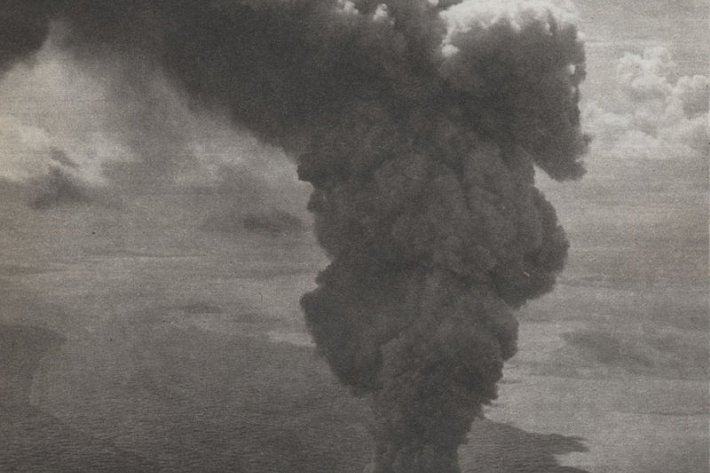-

Marine heatwaves
Research ProjectTemperatures around Aotearoa New Zealand are increasing, and not just on land. Amid a changing climate, significant marine heatwaves have impacted Aotearoa over the past decade and are expected to become more frequent and intense. -

Argo floats
Research ProjectSince the early 2000s, NIWA has been part of the international Argo programme, which is deploying floats to measure temperature and salinity throughout the world's oceans. -

Seabed 2030
Research ProjectNIWA is leading a New Zealand partnership to map the South and West Pacific Ocean's seabed as part of a worldwide initiative to map the entire globe’s seafloor. -

Hauraki Integrated Land-Water Modelling
Research ProjectThe Inner Hauraki Gulf/Tīkapa Moana ecosystem is facing proliferations of algae, de-oxygenation, reduced pH (acidification), reduced water clarity, and muddier sediments arising from historical and future land-derived contaminant inputs. -

Tsunami generated by underwater volcanoes
Research ProjectMarsden-funded research investigating how erupting volcanoes can cause deadly and damaging tsunamis. -

Sea2Cloud – how marine aerosols influence the atmosphere and climate
Research ProjectClouds over the ocean, and how they trap or emit radiation from the sun, are partly influenced by the biology, biogeochemistry and physics of the surface ocean below. -

Sedimentation effects
Research ProjectThis programme looks at the impacts of sediment plumes created by disturbance to the seafloor and the discharge of processed waters. -

The Ross Sea Region Research and Monitoring Programme
Research ProjectThe Ross Sea Region Research and Monitoring Programme (Ross-RAMP) is a five-year research programme funded by the Ministry of Business, Innovation and Employment (MBIE) and run by NIWA to evaluate the effectiveness of the Ross Sea Marine Protected Area. -

Ross Sea Environment and Ecosystem Voyage 2019
Research ProjectThe Ross Sea region is vital to the future of the Antarctic ecosystem. -

Pelagic shark risk assessments
Research ProjectNIWA has developed a new method for spatially-explicit, quantitative, sustainability risk assessment of pelagic shark population. -

Shortfin mako sharks
Research ProjectSharks are vulnerable to overfishing because of their low reproductive rates and often low growth rates. Most pelagic sharks fall near the middle of the shark productivity scale, and there is concern that catching too many of them could lead to population depletion. In New Zealand waters, mako sharks are the second most commonly caught shark species (after blue sharks) on tuna longlines. -

Satellite tracking of blue whales
Research ProjectThe aim of this voyage was to examine the movement and habitat utilization of pygmy blue whales in New Zealand waters.
